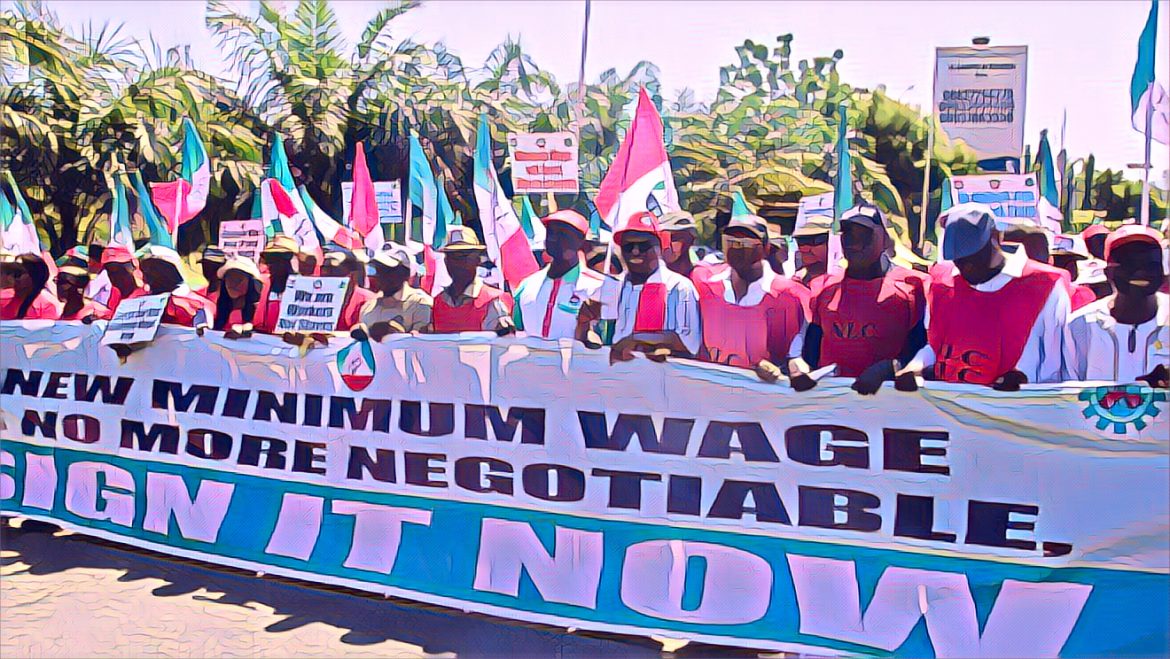Nigeria’s government faces a significant financial challenge as labor unions demand substantial wage increases, which could cost over N11 trillion annually. The unions are pushing for higher wages in response to the rising cost of living and economic pressures.
The Nigerian Labor Congress (NLC) and the Trade Union Congress (TUC) are at the forefront of these demands, advocating for a new minimum wage and salary adjustments across various sectors. The proposed increases are intended to help workers cope with inflation, which has eroded purchasing power and left many struggling to make ends meet.
Economists warn that meeting these demands could have severe implications for Nigeria’s already strained fiscal budget. The country’s economy, still recovering from the impacts of global economic downturns and domestic challenges, might struggle to absorb such a significant increase in expenditure. The additional N11 trillion would represent a substantial portion of the national budget, potentially leading to higher borrowing or cuts in other critical areas.
The government, aware of the potential economic fallout, has expressed its commitment to improving workers’ welfare but also highlighted the need for a balanced approach. Officials argue that while wage increases are necessary, they must be sustainable to avoid long-term fiscal imbalances. The government has proposed a phased implementation plan, which it believes would mitigate the immediate financial impact while addressing the unions’ concerns.
Labor unions, however, remain steadfast in their demands. They argue that the government has the resources to meet the new wage requirements if it addresses issues such as corruption, inefficiencies, and unnecessary expenditures. The unions also point out that improved wages would boost consumer spending, stimulate economic growth, and reduce poverty.
Negotiations between the government and labor unions are ongoing, with both sides seeking a resolution that avoids disruptive strikes while ensuring fair compensation for workers. The stakes are high, as prolonged industrial action could further destabilize the economy, affecting businesses, public services, and overall productivity.
In the face of these challenges, some experts suggest that Nigeria should focus on broader economic reforms to create a more resilient and diversified economy. This includes investing in infrastructure, education, and healthcare, which would enhance productivity and create jobs, thereby reducing the pressure for wage increases.
Despite the current tension, there is hope that a mutually agreeable solution can be found. Both the government and labor unions recognize the importance of maintaining stability and fostering economic growth. By working together and considering both immediate needs and long-term sustainability, Nigeria can navigate this complex issue.
Ultimately, the resolution of these wage demands will require compromise and collaboration. The government must address the legitimate concerns of workers while ensuring that the country’s fiscal health is not jeopardized. As discussions continue, there is optimism that a balanced approach will emerge, leading to a more prosperous and equitable future for all Nigerians.
Source: BusinessDay


